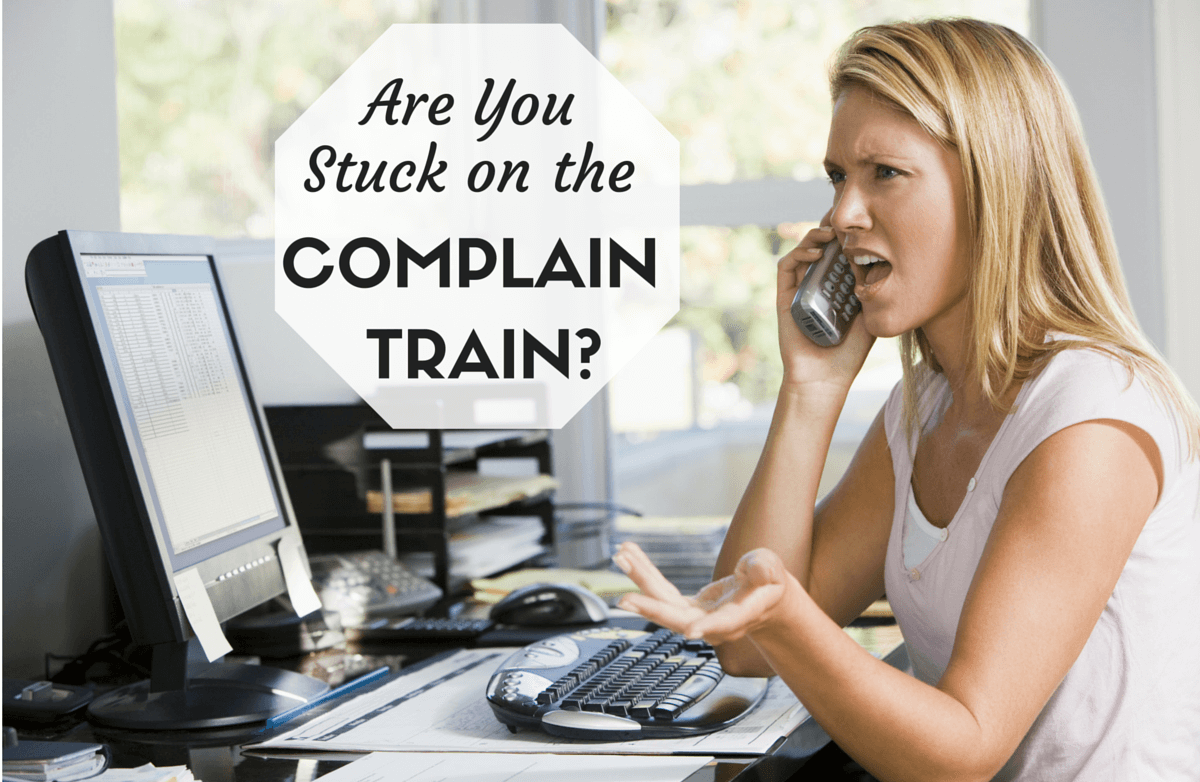Let's face it: We spend a lot of time at work. Sometimes in the hustle and bustle of deadlines and desk lunches, though, we forget to evaluate how working and the work environment
If you've spent time in at least a few different jobs in your lifetime, then you're bound to have come across an environment that is less than desirable, which can wreak havoc on your overall health, productivity and happiness. And while most businesses go through periods of negativity or toxicity, knowing how to react and respond during those stressful times can help you make the most out of a bad situation.
What does a negative work environment look and feel like?
Low morale and a reduction in productivity are obvious when a work environment has gone bad. But before you get to that level of toxicity, there are some telltale signs to look out for so you can extract yourself from the situation before it's too late. Some of the signs you may begin to notice if your work environment is negative—or on its way to becoming toxic— include not having a work/life balance, not feeling supported, unprofessional colleagues, a lack of leadership, or having no interest in going to work anymore. You may also notice a lack of communication, inconsistency in policies and procedures, and a boss who thinks they can do no wrong.
Quite often, people in a negative work environment have a difficult time discerning between a bad day and a workplace that has become toxic. Here's a hint: If your work day is filled with undermining coworkers, passive aggressive communication, groups of people gossiping or cattiness, there's a good chance your situation has gone beyond just annoying or frustrating.
How can a negative work environment impact your health?
For some of us, our workday makes up the majority of our waking hours, which is what makes a toxic workspace all the more troubling. If you're not in a position to leave your current employment, it's important to watch for any signs of ill-being as a result of your job, including worry, anxiety, dread, irritability with others, discouragement, loss of sleep, not feeling rested when you get up, and an overall sense of being stressed. Many people also have great difficulty separating work stress from the home environment, and so they bring it home with them, resulting in poor
"When you have a negative or toxic work environment, that can cause you stress, which means cortisol coursing through your body. It can affect you physically and mentally," explains Lisa Sansom, a life coach and founder of LVS Consulting. "People will often seek out little dopamine hits in the brain, just to feel good, which can mean snacking on junk food (sugar makes us feel good in the short term, as
I'm in a negative work environment, now what?
When you are surrounded by negativity, passive-aggressive leadership and harmful workplace gossip, it's important to remember that this is not a reflection on you. Learning to separate the daily toxicity from your own self-worth, values and beliefs is the first step to surviving a negative work environment.
"Often what happens,
This can decrease your ability to brainstorm solutions and think creatively. Mitchell says it's also common to lose sight of your personal agenda. "If you're not careful, you can easily get off track in your career." That's why Mitchell says you need to think about why you're in the position you currently occupy. If your workplace provides what you need, then concentrate your efforts on insulating yourself from the negativity going on around you.
You can separate the daily toxicity from your own self-worth by making a list of the reasons you bring value to the job and why it's important for you to maintain professionalism. Keep this list in a place where you can quickly glance at it. When the environment gets tense and you find yourself doubting your worth, read over the reasons you matter and bring your focus back to what you have control over.
Leaving work at work is another way to separate yourself from
Can a mindset shift help you cope with negativity and stress?
For a variety of reasons, leaving a less-than-perfect situation is not always an option for people. Because of this, you may find yourself stuck in a negative work environment for much longer than you'd like, so finding ways to cope is critical.
Negative workplaces often nurture and encourage a fixed mindset—or the belief that things will never change—which makes it more likely to feel claustrophobic. If you adopt a growth mindset—or the belief that you can still move forward by focusing on the things you do have control over—you are more likely to address and move beyond some of the characteristics of a negative work environment. In this sense, a growth mindset can help you step back emotionally from the negativity.
Recognizing and accepting that you cannot control what other people say and do is key to surviving and thriving in this environment, and mindset plays a major role in this. Don't engage with coworkers when they are complaining or gossiping. Stay neutral and set limits on the amount of time and energy you're going to spend at work on non-productive activities.
It's also important to always remind yourself that you have control over your actions, thoughts and emotions. Focusing on and practicing positive coping strategies are key in both completing your work and not letting outside influences interfere. Consider taking a walk around the block at lunch or practicing 15 minutes of yoga or meditation exercises during your lunch break. Looking to connect with one positive person at work each day, keeping positive motivational messages around your desk or enlisting the help of your partner or friends to participate in fun post-work activities can all play a part in combatting the negative feelings that build up over the course of a day within a toxic workplace.
How do you know when it's time to go?
"A truly toxic work environment may be entirely unhealthy, so it may be better to use your growth mindset to realize that you aren't handcuffed to your job and you can make changes about where you work," says Sansom. Put your growth mindset to good use and decide if it's worth staying in that negative environment or if you prefer to look at other options. Pros and cons lists or a frank discussion with the people closest to you are both great ways to reassess your situation and see if your job is worth the side effects.
"A large part of the stress people feel is due to feeling out of control and at the mercy of others' decisions," says Mitchell. Shifting your perspective—which is an outcome of a growth mindset—helps you realize that you always have choices, that you are in control or yourself and your reactions, and that ultimately you get to decide whether or not to remain with the company.












